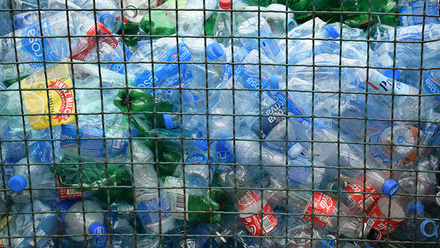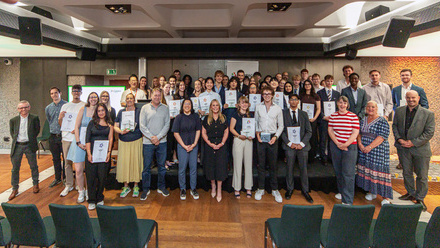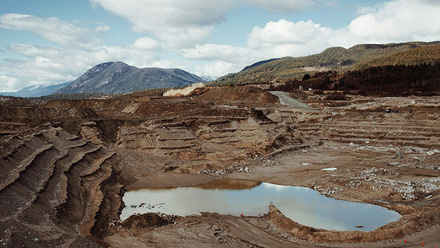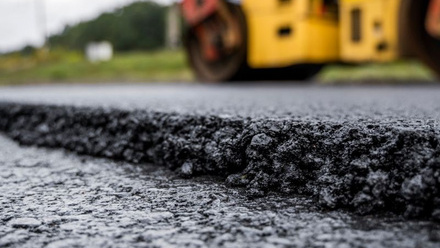What has been happening at COP26 and what this could mean for the waste and resource sector?
Dr Adam Read FIMMM, writes his reflections on COP26.
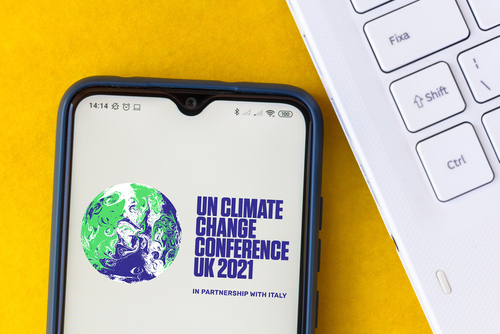
COP26 – resources & waste management on the margins
I thought that after spending last week in Glasgow for COP26, now would be the perfect time to reflect on what happened, and to assess the implications for the waste and resources sector.
Showcasing the big issues
The Green Zone had a real buzz of anticipation, as the energy sector, supermarkets and transport companies presented their headline commitments, plans for decarbonisation and latest technology innovations. The highlight for me was the number of stands that not only demonstrated how consumers can lessen their impact on the climate, through changes in their decisions and lifestyles, including choices of energy provider, ambient temperatures at home, your vehicles and fuels, and dealing with food waste better, but also allowed participants to pledge to change their behaviour and committed to doing something different. If the thousands of visitors in week one at COP26 all leave with a heightened desire to make a change, however small, then COP will have been a success.
'We cannot continue to live using three planet’s worth of resources’
Attending COP26 for me was all about making sure that the issues of consumption, resource use and waste management were given a voice, given how little these issues featured on the main COP26 agenda or on the large number of official fringe activities.
Consumption and the circular economy, however, were raised by speakers across sessions in the Blue and Green Zones, plus any number of the fringe sessions on offer, as experts, academics, policy-makers and campaigners accurately recognised that we cannot continue to live using three planet’s worth of resources. , To address this fully we must look at what we consume, how we produce it, how much can be recycled, and where appropriate the need to move to reuse and refill models. Thus, we consume less and change ownership patterns with consumers leasing more and changing attitudes towards waste – once they have used the packaging or product it is designed to be returned to the manufacturer/brand who will prepare it for its next use.
This provided a bit of a boost for all participants coming from the resources and waste sector perspective as leading figures across the first week identified the need to consume less, go circular and think recycle from Kwarsi Kwarteng MP and Senator John Kerry to former Prime Minister Theresa May and media stars like Tom Heap. From the World Leaders Summit to the themed sessions on energy, nature and youth engagement the resource agenda was on show, and this can only be good for a sector that is trying to move to the centre of the net zero policy agenda.
Reflections and hopes….
I am more optimistic right now than I was on the journey to Glasgow. Resource management, food waste prevention, critical raw materials, consumerisation and the circular economy all got plenty of air-time last week, and the core messages will no doubt continue in the coming weeks, as we reflect on COP26.
But the question now is will resources and waste management get a seat at the policy top table? I am less certain of this, so we must continue to share the strong evidence we have for how our efforts around recycling, waste prevention, food waste reduction and how we continue to deliver significant social befits and biodiversity positive impacts. With compelling evidence and the continuing efforts of organisations across our sector we will be heard but getting the narrative right and shining a light on what we can do and how we can help the net zero drive is key.
Now, the emphasis is very much on taking the core messages from COP to policymakers, politicians, partners and the wider value chain. We must learn our lessons and push forward collaboratively. We have so much opportunity to prove our value, to raise our credibility, and to help drive forward change for the better. There is an increased urgency for the private sector to accelerate action and mobilise the trillions of investment needed to support the transition to a net zero and sustainable economy, and we must step up or we will continue to be marginalised and that just isn’t acceptable.
Bio
Adam is External Affairs Director at SUEZ Recycling & Recovery UK Ltd, working with DEFRA and other key industry stakeholders on the rapidly evolving policy landscape in the UK, and representing the company on numerous technical working groups and with the media. He is also President of the CIWM and a member of their Trustee Board, and Chair of the ESA’s Policy and Resource Strategy Working Group. He has over 25 years of waste & resource sector experience spanning academia, local government, consultancy and for the last 4 years in the private sector with SUEZ. He is also a Fellow of the RSA, RGS, CIWM and IOM3.
This blog was ordinally published by Suez and repurposed for IOM3.



